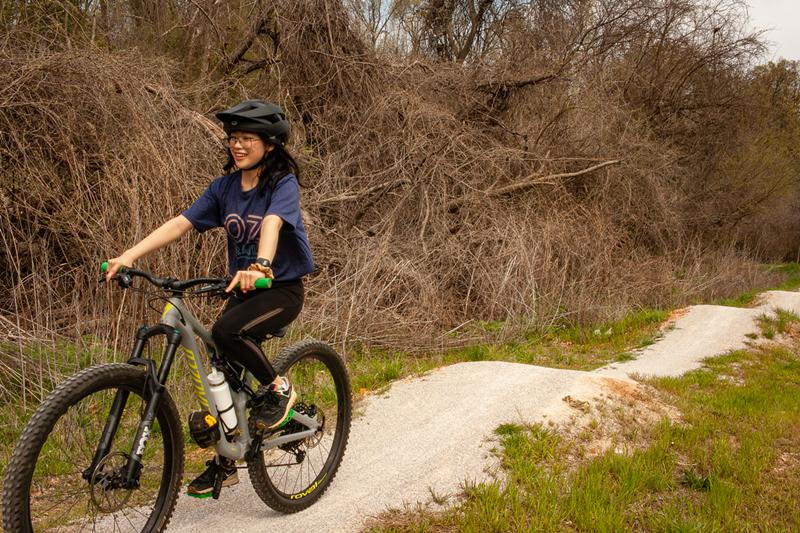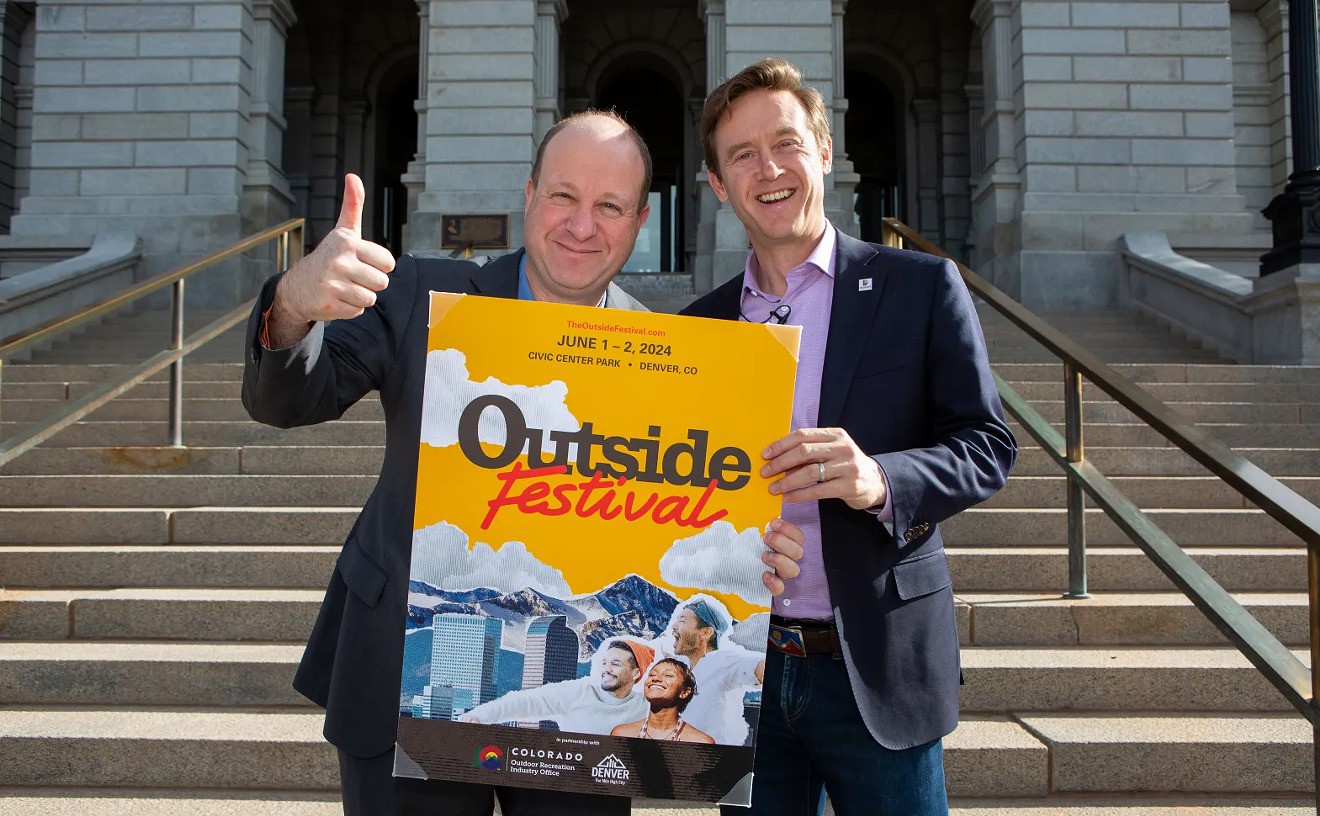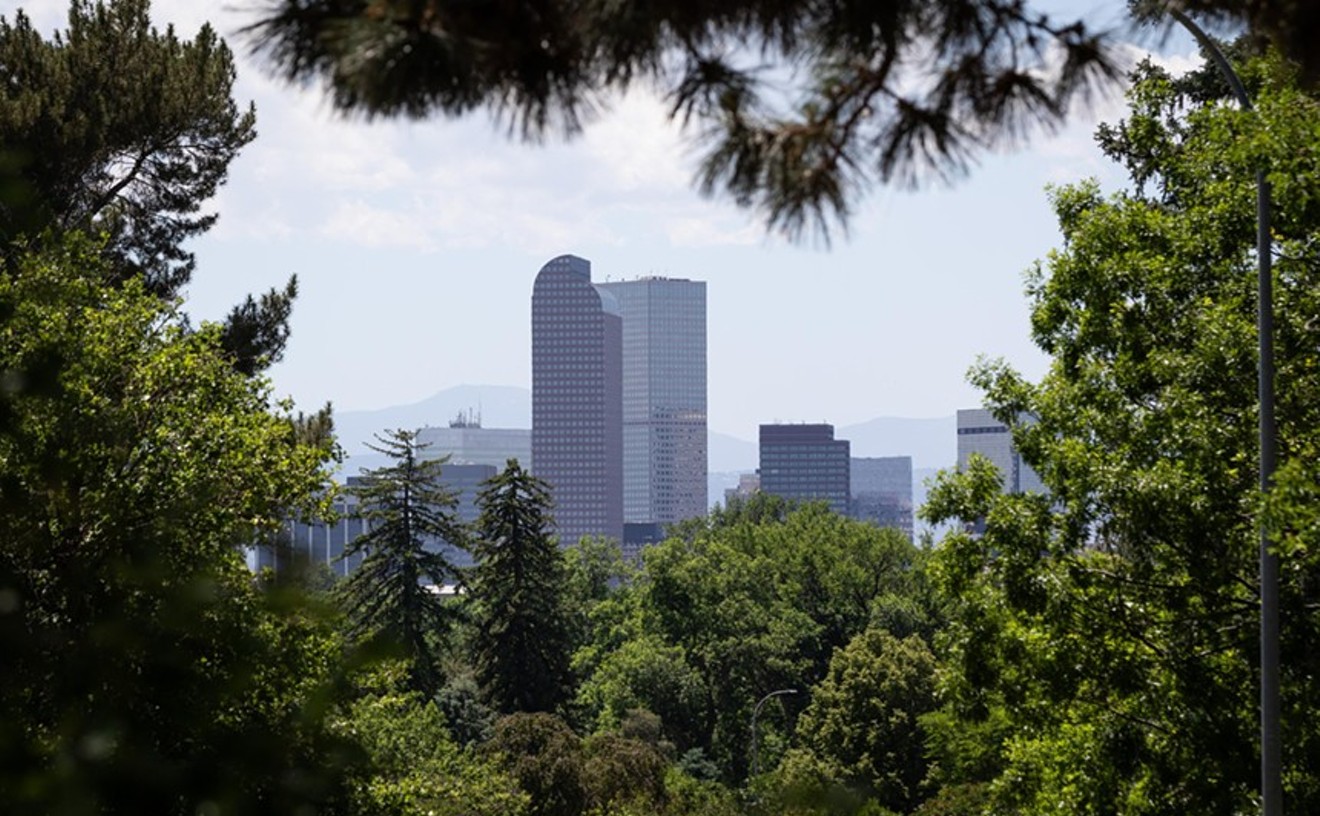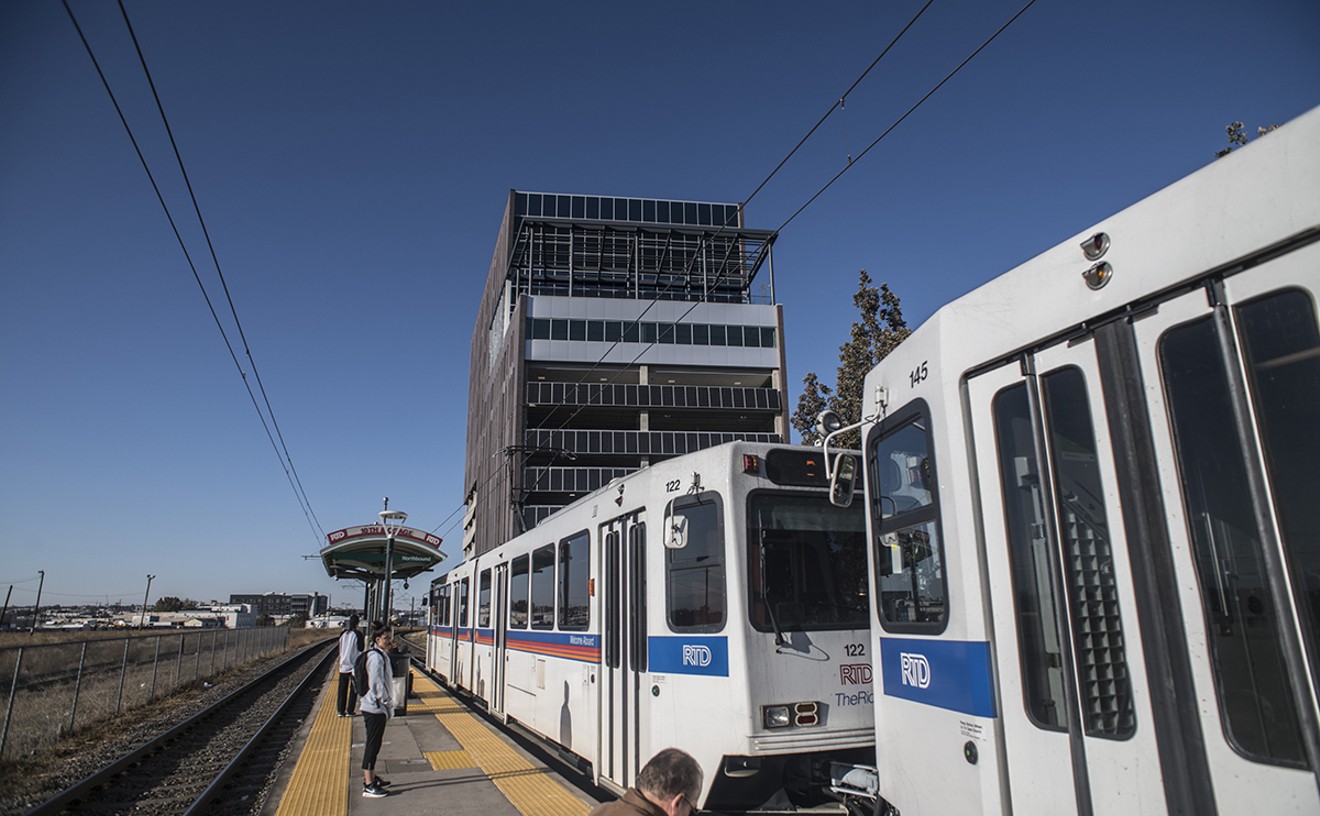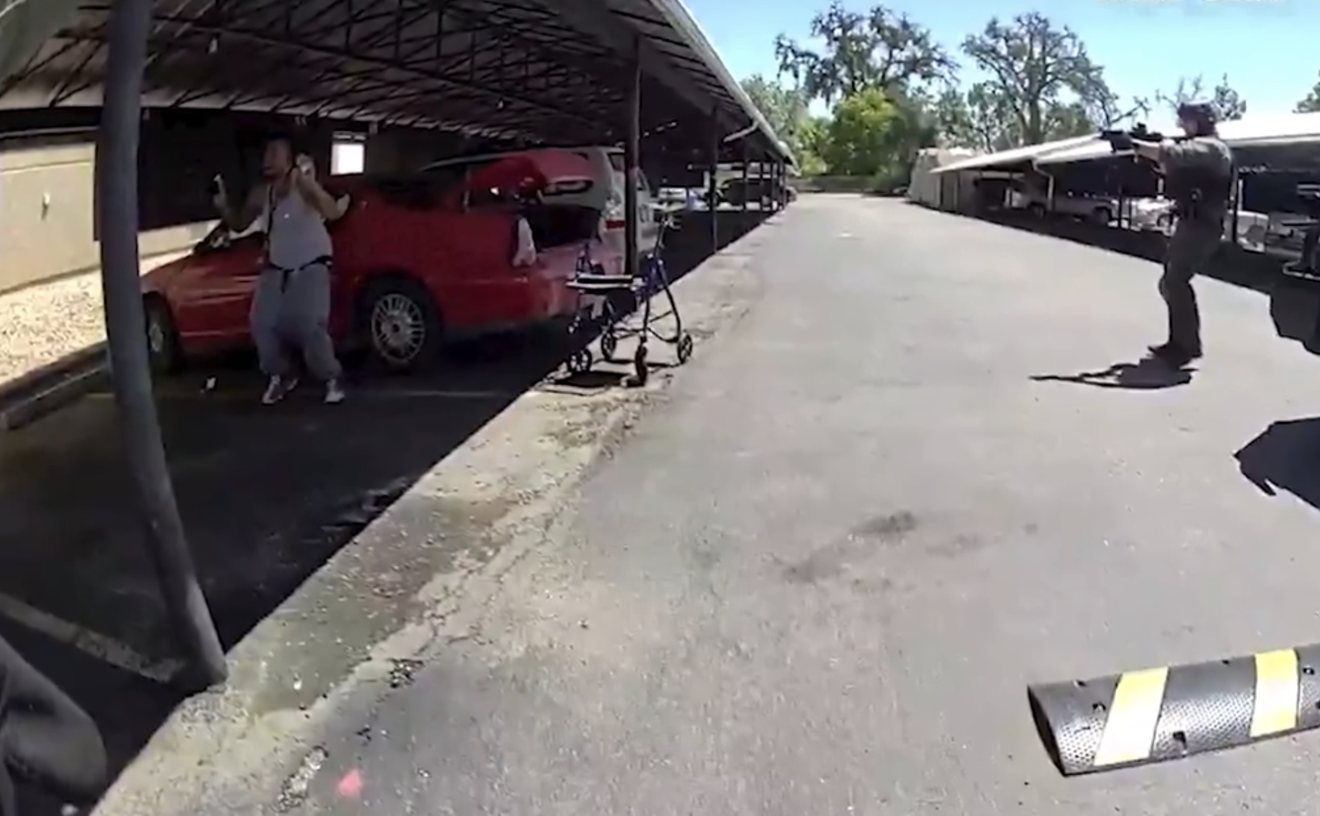Mountain bikes were originally and affectionately known in the mid-1970s as “Crested Butte klunkers,” one-speed, 35-pound hunks of metal that locals had Frankensteined out of Schwinn frames and modified parts. It wasn’t long before cyclists were riding those klunkers past the city limits into Crested Butte’s mountain valley full of old mining roads and unofficial singletrack trails.
Mountain biking in Colorado has such a long and storied history that the Town of Crested Butte shares the claim as the birthplace of the sport with Mount Tamalpais in Marin County, California. However, over the past few years, a new contender for mountain-biking king of the hill has rolled into the spotlight: Bentonville, Arkansas, which currently calls itself the “Mountain Biking Capital of the World.”
And as if that weren’t enough of a slight, in December 2022, USA Cycling, which has been headquartered in Colorado Springs since 1995, announced that Bentonville would become the new official “Home of the U.S. National Mountain Bike Team.”
The good news is, the whole USA Cycling operation isn’t moving from Colorado Springs, at least not yet, and USA Cycling CEO Brendan Quirk denies that’s the long-term goal. For now, it's more of a symbolic move, says Quirk, who's quick to add that Coloradans should not see the announcement as a snub: “We’ve got a big ol’ office there in Colorado Springs; it’s the center of gravity for us. It has been and will continue to be our global headquarters. I mean, it’s called Olympic City USA for a reason, and we’re definitely going to stay there, and we’re investing in jobs there, as well.”
Quirk emphasizes that rather than a move, this is an expansion of the mountain-biking organization and athlete support. USA Cycling is establishing a small satellite office in the “first-ever bikeable building,” known as the Ledger, in downtown Bentonville. It will be staffed with personnel primarily focused on building out the mountain-biking collegiate program, which he points out has historically lacked support and structure.
Such support and structure were hallmarks of Colorado mountain biking from the start. Long before it became another swanky ski town, Crested Butte was an isolated mountain hamlet with unpaved dirt roads full of potholes. Tired of their cars constantly breaking down, nearly every resident owned a bicycle — not for sport, but as the only reliable form of transportation.
The most famous of what would eventually become actual mountain-biking trails is Pearl Pass. As the origin story goes, back in 1975, Aspen motorcyclists would rock into Crested Butte bragging about conquering the treacherous pass and picking up women at the local Grubstake Bar. ”Well, the Crested Butte guys who hung out at the Grubstake plotted their revenge; they’d ride their one-speed klunkers over Pearl Pass to Aspen, park them in front of the Jerome Hotel, and do their thing. In a way, the whole thing started out as a joke,” explains Kay Peterson-Cook, mountain biker, longtime Crested Butte resident and original co-owner of the now-defunct Donita’s Cantina, on the website for the Marin Museum of Bicycling.
Word traveled fast, and in the following years, a group of California mountain-biking enthusiasts showed up with their experimental multi-speed fat-tire bikes for their chance at conquering Pearl Pass. Today the 23-mile, 3,900-foot-elevation trail is still a technical favorite for advanced mountain bikers, requiring slogs up steep climbs as well as the navigation of boulder fields, water crossings and narrow roads.
Crested Butte is also home to the oldest mountain-biking club in the world, the Crested Butte Mountain Biking Association, and hosts the longest continuously running mountain-biking festival, Crested Butte Bike Week (formerly known as Fat Tire Bike Week).
For decades, Colorado’s reputation as a mecca for mountain biking in North America could be challenged only by the likes of Moab, Utah, or Whistler, British Columbia. In fact, the MTB Project, an online crowdsourced mountain-bike guide, tallies an impressive 6,621 miles of mountain-biking trails on the Front Range, with Colorado boasting one of the highest densities of mountain-biking trails in the United States — a fact that is only emphasized further when filtering to trails at elevations of 3,000 feet or higher.
Over the past few years, however, Bentonville — at an elevation of 1,298 feet and better known as the headquarters for Walmart — has experienced an unprecedented amount of investment in its mountain-biking trails and community, primarily through two avid mountain bikers in the Walton family, brothers Tom Walton and Steuart Walton, grandsons of Walmart founder Sam Walton. Their philanthropic organizations, including the Walton Family Foundation and Runway Group, have invested an estimated tens of millions of dollars to design, build and maintain hundreds of mountain-biking trails in Northwest Arkansas.
Their love for mountain biking came from spending summer vacations in Colorado, and after college — Steuart earned his undergraduate degree in business administration from the University of Colorado Boulder — both wanted to implement the same world-class mountain-biking infrastructure in their hometown.
The brothers tapped Gary Vernon, a biking enthusiast and senior program officer of the Walton Family Foundation, to bring their vision to fruition. On an episode of the podcast The Bentonville Beacon, Vernon describes the scope of the effort: “We just are using the best trail-builders we find in the nation and having them try different things, and we allow them to push the envelope and try new things that nobody else has tried,” he explains. “Different surfaces — maybe it’s natural stone surface, or bringing in flat stones and paving a trail, or even adding a road surface-type material to make a flow trail through the woods that you never have to maintain.”
On the same podcast, Vernon estimates that the team he oversees has built an average of two miles of trail per week, including those that connect communities, traverse the University of Arkansas campus, and even spider away from trailheads that begin in downtown Bentonville. As of 2022, more than 600 miles of trails had been built in the area.
The Walton brothers’ mountain-biking ambitions don’t stop at trails, however. They have also donated more than $1 million to Northwest Arkansas Community College for an accredited Bicycle Assembly and Repair Technician program and have plans to expand the grant to teach trail-building trades and master community planning.
It’s all gotten the mountain-biking community’s attention. Within just the last three years, prominent bike companies such as Altangle, Vittoria, Rapha and Hellion Bikes have moved their headquarters to Northwest Arkansas. Others, including Specialized, have opened satellite offices in Bentonville.
USA Cycling's Quirk confirms that the decision to name Bentonville the new home of the national mountain-bike team came from discussions starting back in April 2022 between USA Cycling, the City of Bentonville, and the Waltons' Runway Group. USA Cycling has declined to make the detailed terms of the agreement public, including any incentives, grants or other commitments that helped lure it away from Colorado.
“[Bentonville] has made really incredible investments in mountain-bike trail infrastructure of all kinds. And it’s not just the infrastructure, but they’ve also become very committed to hosting international-caliber bike racing in the region, as well,” explains Quirk. “Because of that, our riders [and coaches] are spending more and more time there. … The question became, how do we sort of create something structured around this natural momentum we have that our athletes and our teams are spending more and more time either racing in mountain-bike races or preparing for mountain-bike races there in Bentonville?”
In terms of ease of trail development, Northwest Arkansas beats Colorado hands-down. “If you wanted to build a trail in Golden or in Boulder, it would take an act of Congress, because it’s hard to preserve open space,” Quirk explains. In addition, Bentonville’s more temperate climate allows mountain bikers to train year-round, an impossibility in Colorado with its snowy, windy winters. On the other hand, the highest peak in Arkansas, Mount Magazine, comes in at a paltry 2,753 feet.
However, Quirk says that Colorado will always have a place in an athlete’s training regimen. “There’s definitely a place for altitude, and, you know, Bentonville doesn’t have it,” he acknowledges. “The other thing about Bentonville is that the terrain is kind of like a saw blade. You don’t have what you get in Colorado and Utah, which is, ‘Okay, I’m going to go on a 45-minute unrelenting climb.’”
It’s those unrelenting climbs that make Colorado such a mountain-biking destination, and why mountain bikers training for Olympic and other competitions will continue to train here, Quirk confirms — or wherever they happen to be working with a coach or a team.
“A lot of that structure for collegiate cycling doesn’t exist,” Quirk adds. “And so this is what the team that’s going to be based in Bentonville is going to do. Our goal is to grow participation in collegiate cycling and create more opportunity around it, more excitement around it.”
In addition to its collegiate focus, the Bentonville office will coordinate and support local talent identification camps, national team camps, and international and national mountain-bike races. The ultimate hope, Quirk says, is that establishing Bentonville as the trailhead for mountain biking will help grow the sport at a grassroots level and continue to drive international success — including at the 2028 Olympics in Los Angeles.
“We’ll have cyclists there, and they’re going to be fighting for gold,” he promises.

